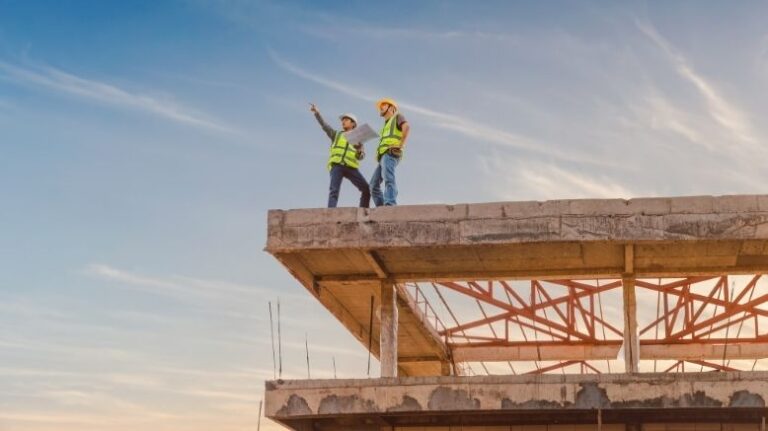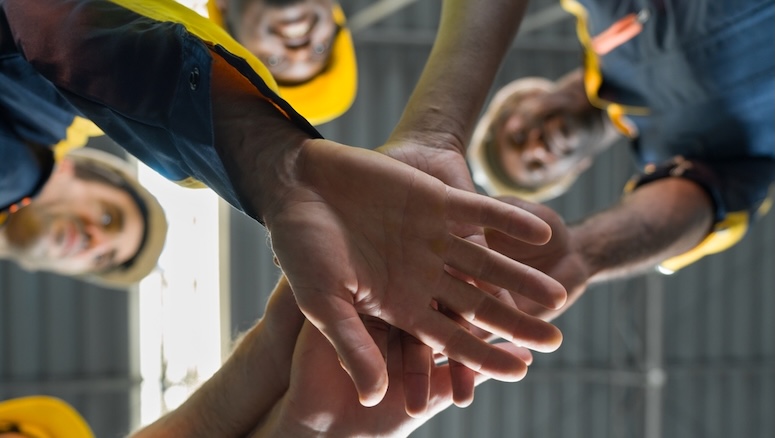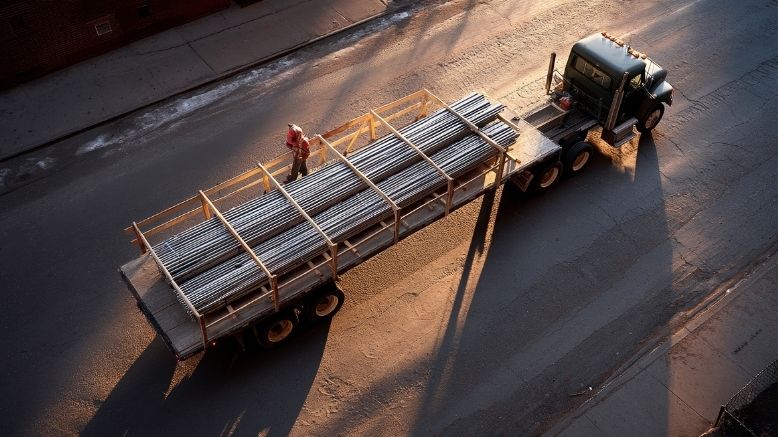— 3 min read
Learning to Change: Overcoming Blockers for Construction Transformation


Last Updated Oct 15, 2025

Ryan Ware
CEO
Ryan Ware is a Change Management Consultant, Coach, and Speaker who helps AEC (Architectural, Engineering and Construction) industry leaders build stronger relationships with change to lead with clarity, confidence, and curiosity. As the founder of Connective Consulting Group and Connecting Coaching, Ryan blends operational expertise through Fractional COO support and human-centered coaching to help organizations align people, process, and purpose. Through his Activating Curiosity podcast and speaking engagements, he challenges leaders to reframe resistance, embrace uncertainty, and turn change into a strategic advantage.

Diane McCormick
Writer
52 articles
Diane McCormick is a freelance journalist covering construction, packaging, manufacturing, natural gas distribution, and waste oil recycling. A proud resident of Harrisburg, PA, Diane is well-versed in several types of digital and print media. Recognized as one of the premier voices in her region, she was recognized as the Keystone Media Freelance Journalist of the Year in 2022 and again in 2023.
Last Updated Oct 15, 2025

Even as technology brings change in waves like a tsunami, the construction industry tends to cling to old habits — to the detriment of its projects and the personal growth of its people.
Resisting change is a natural human impulse, but those who see it as an opportunity to learn are those who thrive and prosper in new circumstances and under new conditions.
The keys to reversing course begin with an understanding of why construction people, in particular, reject change, even when change is to their benefit. With a clear-eyed look at the construction mindset, based on many years of observation and experience, and a commitment to making learning a daily process, the industry and its people can become leaders in reshaping to survive and thrive in a digital landscape.
Table of contents
Why Construction Resists Change: 3 Key Obstacles
Early in their careers, construction apprentices adopt strong habits and routines through training and practice. In a high-pressure environment, good habits help them stay focused and on track to achieve their goals.
The message is about mastery of a process or tool that will deliver success — still an important goal, but one lacking further training in how to make learning a lifetime process.
The focus on mastery as an end goal creates three common roadblocks to change.
Learning to adapt and building a new relationship to change begins by understanding why construction pros overvalue what they know, fear disruption, and misplace their emotional reactions.
1. Overvaluing the 'Known'
The “teach a man to fish” proverb is about self-sufficiency — a concept dear to construction pros — but what happens when the lake dries up?
With one skill in his toolbox and no ability to adapt, the fisher will starve. He never learned how to learn, so he clings to what he knows.
Cultivating adaptability comes from developing the skills for continuous learning. Applying that ability to learn leads to better decisions and comprehension of a changing world through active exploration of available choices. It might even cultivate an appreciation of the unknown as a destination for revelations and awareness.
2. Fearing Disruption
In the pressure chamber of construction, people feel the need to prioritize daily deadlines over taking time to adopt new processes. With that outlook, every job has a deadline, and it will always take precedence. Learning a new task will never be accomplished.
The term “disruption” has become a business buzzword for admirable change — but construction minds automatically translate “disruption” to “expensive and time-consuming.”
In reality, self-imposed obstacles tend to overestimate the pain of change while discounting its benefits. They also devalue the learning stage, even though learning empowers independence and fuels positive change in a virtuous circle.
3. Misplacing Emotions
In construction, some people feel that replacing an old process strips away its credence. They might be embarrassed that the ways they were taught now seem irrelevant.
That emotion-based viewpoint forgets that the old processes were the best practices for their time. The craftsmanship of previous generations isn’t less valued because power tools replaced their hand tools. Technology simply delivered the same results with greater efficiencies.
A better alternative is to emphasize the ability to learn and the freedom to explore, while remembering that everything learned in the past has led to this point. In fact, the ability to question whether a current practice remains relevant opens the door to learning new skills.
Stay updated on what’s happening in construction.
Subscribe to Blueprint, Procore’s free construction newsletter, to get content from industry experts delivered straight to your inbox.

Rebuilding the Relationship with Change
Today’s construction industry is a giant repository for solutions, tools and ideas. Harnessing them to elevate the field to greater heights in productivity, risk mitigation, and operational efficiencies demands greater focus on its people, teaching them how to learn and how to change.
In this atmosphere, three questions can help construction professionals and their teams build healthier relationships with change:
- What is something that you have been wanting to try but have avoided, even though clinging to the known no longer benefits you?
- What pain are you overestimating?
- What things are you holding onto because the idea of losing it creates an emotional, perhaps irrational, reaction?
When learning becomes the sector’s most valuable tool, the industry can thrive as change becomes the norm.
Was this article helpful?
Thank you for your submission.
100%
0%
You voted that this article was . Was this a mistake? If so, change your vote
Scroll less, learn more about construction.
Subscribe to The Blueprint, Procore’s construction newsletter, to get content from industry experts delivered straight to your inbox.
By clicking this button, you agree to our Privacy Notice and Terms of Service.
Thank you!
You’re signed up to receive The Blueprint newsletter from Procore. You can unsubscribe at any time.
Categories:
Written by

Ryan Ware
CEO | Connective Consulting Group
Ryan Ware is a Change Management Consultant, Coach, and Speaker who helps AEC (Architectural, Engineering and Construction) industry leaders build stronger relationships with change to lead with clarity, confidence, and curiosity. As the founder of Connective Consulting Group and Connecting Coaching, Ryan blends operational expertise through Fractional COO support and human-centered coaching to help organizations align people, process, and purpose. Through his Activating Curiosity podcast and speaking engagements, he challenges leaders to reframe resistance, embrace uncertainty, and turn change into a strategic advantage.
View profile
Diane McCormick
Writer | Procore Technologies
52 articles
Diane McCormick is a freelance journalist covering construction, packaging, manufacturing, natural gas distribution, and waste oil recycling. A proud resident of Harrisburg, PA, Diane is well-versed in several types of digital and print media. Recognized as one of the premier voices in her region, she was recognized as the Keystone Media Freelance Journalist of the Year in 2022 and again in 2023.
View profileExplore more helpful resources

6 Tips to Turn Construction Culture Into Daily Practice
Every construction company has a culture. Whether it’s intentional or not. The difference lies in how that culture shows up on the job. In the first article of this series on...

Turning Values into Workflows: How a GC Firm Operationalized Culture
Culture isn’t just about what companies believe — it’s about how those beliefs show up in day-to-day work. When culture is embedded into operations, it becomes something teams can rely...

How a Successful GC Firm Turned Personalities into Culture
The culture at Ryan Gootee General Contractors (RGGC), a successful construction firm based in New Orleans, was never something the company had to invent. It was always there. Woven into...

Rise of the Super-Sub: Mastering Supply Chain & Logistics for Offsite Construction
Modern construction projects come with ever-increasing demands. Owners want to see more complex builds completed on tighter schedules. At the same time, general contractors (GCs) face challenges like the ongoing...
Free Tools
Calculators
Use our calculators to estimate the cost of construction materials for your next project.
Templates
Find a template to help you with your construction project tasks.
Material Price Tracker
Get the latest U.S. retail prices and view historical trends for common building materials.
Glossary
Explore key terms and phrases used in the industry.
